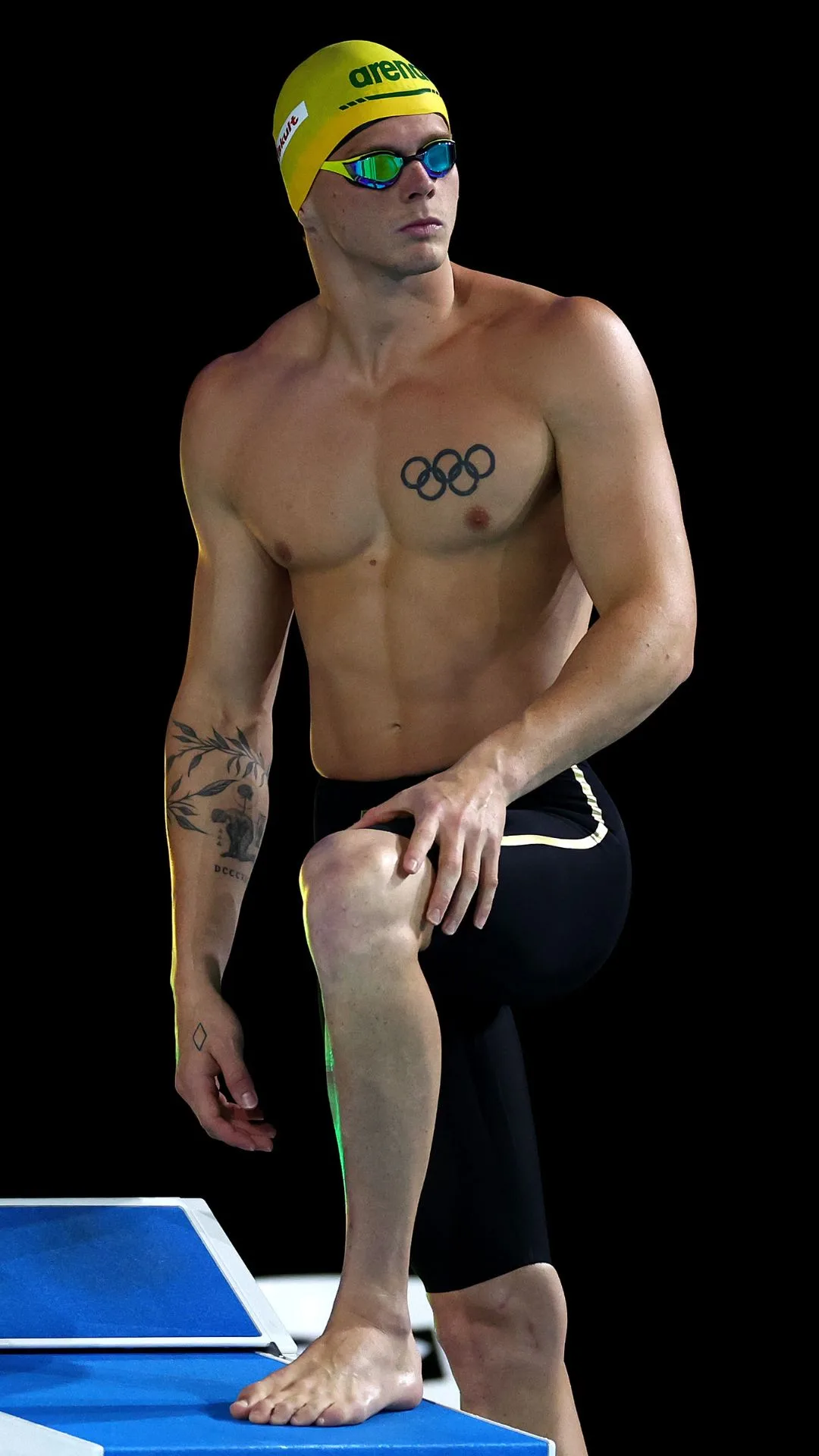Isaac Cooper is only 20 years old, yet his name already sits among the greats of Australian swimming. In February this year, he became a world champion, powering to gold in the men’s 50-metre backstroke at the World Aquatics Championships in Doha. His time of 24.12 seconds set a new Oceanian record and confirmed him as one of the fastest backstrokers on the planet.
But as the year drew to a close, Cooper announced he would be stepping back from competition, choosing what he described as “a massive reset” after an exhausting Olympic cycle. For an athlete so young, the decision to hit pause at the very point his career is taking off is striking — yet it says as much about the man as it does about the sport.
A Meteoric Rise
Born in Bundaberg, Queensland, in 2004, Cooper’s talent was spotted early. A backstroke specialist with a flair for sprinting, he carved his path through the age-group ranks before bursting into senior contention in 2021. At just 17, he booked a place on the Australian team for the Tokyo Olympics.
There he won bronze as part of the mixed 4×100-metre medley relay, while finishing 12th in the 100-metre backstroke. For most, that debut alone would be a career highlight. For Cooper, it was a beginning.
In the years that followed, his progress was remarkable. He picked up multiple medals at short-course world championships, helped Australia to a world record in the 4×100-metre medley relay, and became known not only for his speed but also for a willingness to train differently. Unlike many of his peers, Cooper reduced his weekly pool mileage dramatically, supplementing the water work with surfing, tennis, and martial arts. “The secret to swimming faster is swimming less,” he once remarked, half-in jest but also with the conviction of someone unafraid to challenge orthodoxy.
Doha Glory
The highlight came in Doha in February 2024. Racing in a pool he later admitted gave him difficulty with orientation because of its curved roof, Cooper still delivered a swim of rare authority. “I told my coach I’d love to break 24 tonight, but I whacked my finger a few times… the roof was curved and it was a bit of a mind-game swimming straight,” he said afterwards.
Despite those struggles, he touched first, claiming the world title and a continental record in the process. It was a performance that seemed to confirm his status as Australia’s next great sprint backstroker.
A Sobering Olympics
The Paris Olympics, however, were less kind. Switching his focus to the 100-metre backstroke — the discipline contested at Olympic level — he posted a promising 53.46 at the Australian trials, enough to earn selection. But in Paris, he ranked only 21st in the heats. In the men’s 4×100-metre medley relay, Australia finished sixth. Respectable results, but well short of the highs of Doha.
For Cooper, the experience appears to have crystallised the need for reflection. Announcing his break in December, he explained that he wanted to spend time with family, rebuild relationships, and re-centre himself after years of relentless training and competition. “I’ll be back, don’t you worry,” he joked, adding that for now he planned to bulk up and step away from the grind.
Beyond the Pool
What makes Cooper compelling is not only his raw talent but his outlook. He has been open about the pressures of elite sport, willing to speak frankly about the mental strain of being thrust into the spotlight so young. His honesty stands in contrast to the stereotype of the stoic Australian swimmer, and it has earned him admirers both inside and outside the sport.
In many ways, his decision to take a break at 20 is emblematic of a new generation of athletes — unwilling to be defined solely by medals and prepared to take unconventional paths to longevity and fulfilment.
The Road Ahead
Few doubt that Cooper will return. At his age, time is on his side, and the natural speed that carried him to a world title cannot be coached away. Whether he rediscovers the spark for the Paris disappointment or chooses an entirely different direction, his name will remain one to watch in the years leading to Los Angeles 2028.
For now, though, the boy from Bundaberg is doing what many athletes struggle to admit they need: stepping back. In an era where the demands of high-performance sport often burn out young talent, Cooper’s choice may yet prove to be the wisest swim of his life.
